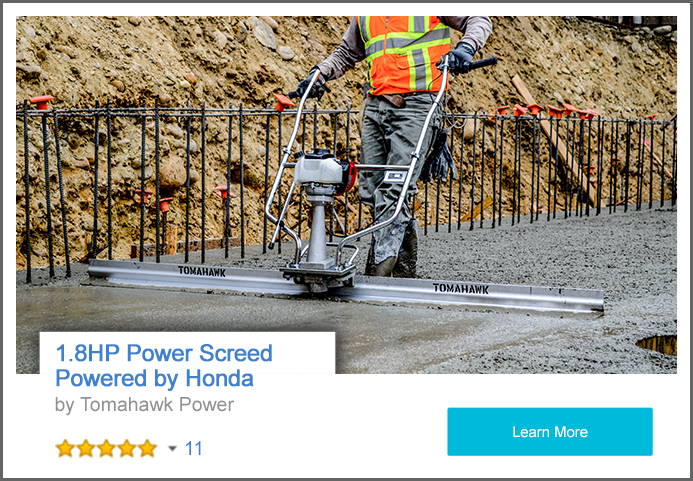Concrete work is a cornerstone of many construction projects, and having the right tools is essential for achieving quality results efficiently. While investing in concrete tools may seem like a significant expense upfront, strategic investments can yield substantial returns on investment (ROI) over time. In this blog, we'll explore the importance of strategic investments in concrete tools and highlight key factors to consider when making purchasing decisions to maximize ROI.
1. Prioritize Quality and Durability: When it comes to concrete tools, quality and durability should be top priorities. Investing in high-quality tools may involve a higher upfront cost, but it pays off in the long run through increased reliability, performance, and longevity. Look for reputable brands known for manufacturing durable, professional-grade tools that can withstand the rigors of daily use on the job site. Quality tools are less likely to break or malfunction, reducing downtime and costly repairs, and ultimately maximizing ROI over their lifespan.
2. Choose Multi-Functional Tools: Multi-functional tools offer versatility and efficiency, allowing contractors to tackle a variety of tasks with a single tool. When investing in concrete tools, prioritize multi-functional options that can perform multiple functions or tasks. For example, a combination power trowel and edging tool can streamline the finishing process by eliminating the need for separate tools. Similarly, a multi-purpose concrete saw that can cut, grind, and polish concrete offers greater versatility and value for contractors.
3. Invest in Time-Saving Equipment: Time is money in the construction industry, and investing in time-saving equipment can significantly impact productivity and profitability. Look for concrete tools and equipment that are designed to streamline workflows, reduce labor costs, and minimize project timelines. For example, investing in a ride-on concrete trowel or power screed can dramatically speed up the finishing process for large-scale concrete pours, allowing contractors to complete projects more efficiently and take on additional work.
4. Consider Long-Term Benefits: When evaluating concrete tool investments, consider the long-term benefits and potential ROI beyond the initial purchase price. While cheaper, lower-quality tools may seem like a cost-effective option upfront, they often require frequent replacements and repairs, resulting in higher overall costs over time. On the other hand, investing in high-quality, durable tools may involve a higher initial investment but pays off through increased reliability, reduced downtime, and longer service life, ultimately maximizing ROI in the long run.
5. Stay Updated with Technology: Advancements in technology have transformed the concrete industry, offering innovative tools and equipment that improve efficiency, accuracy, and productivity. Stay updated with the latest technological advancements in concrete tools and invest in modern equipment that incorporates cutting-edge features and capabilities. For example, laser-guided concrete screeds and GPS-equipped concrete mixers offer enhanced precision and accuracy, allowing contractors to achieve superior results with less effort and waste.
Strategic investments in concrete tools are essential for maximizing ROI and achieving success in the construction industry. By prioritizing quality and durability, choosing multi-functional tools, investing in time-saving equipment, considering long-term benefits, and staying updated with technology, contractors can make informed purchasing decisions that yield significant returns over time. With the right tools in hand, contractors can increase efficiency, reduce costs, and deliver high-quality results that exceed customer expectations, ultimately maximizing profitability and success in the competitive concrete market.










